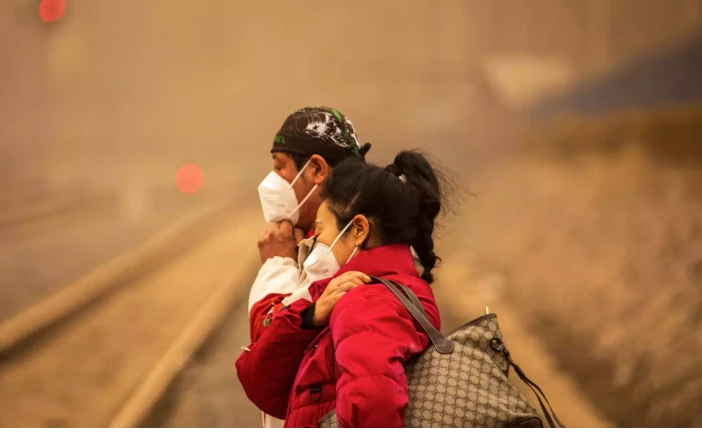World facing last chance to keep pandemic accord alive

Stay tuned with 24 News HD Android App

Countries thrashing out a historic agreement on tackling future pandemics must use April to bridge their differences because failure cannot be an option, the negotiations co-chair told AFP.
Nations have spent the last two years drafting an international accord on pandemic prevention, preparedness and response, but remain far apart on crucial issues such as vaccine equity and pathogen surveillance.
The planned final round of negotiations therefore missed the target of finishing the accord by Easter to make it ready for adoption by the World Health Organization's 194 member states at their annual assembly starting on May 27.
Countries will instead return to the WHO headquarters in Geneva for a do-or-die extra round of talks from April 29 to May 10.
Roland Driece, who is co-chairing the negotiations, wants nations to use the time between now and then to climb out of their trenches and find compromises.
"We want them to speak with each other, and not at each other," the Dutch health diplomat told AFP.
"That's the biggest challenge we have had: people speaking a lot -- they spoke forever -- but sometimes it's not speaking with each other, but telling the other what you find important.
"You need to bridge your differences."
The main sticking points include sharing access to emerging pathogens, better monitoring of disease outbreaks, reliable financing, and transferring pandemic-fighting technology to poorer countries.
Sharpening minds ahead of the April-May talks, several countries have raised the spectre of another Covid-19, which shredded economies, overturned societies, crippled health systems and killed millions.
- Focus and urgency -
"Everybody understands that failure is not really an option," said Driece.
"There's so many things in the world that require political attention: Ukraine, Gaza, climate change. It's our duty to keep the focus and the urgency."
Driece's Intergovernmental Negotiating Body will draw up a streamlined new draft text by April 18, honing in on areas of common ground.
One European ambassador, frustrated by the process, said success would depend on getting a concise, convergence-oriented document to work from.
"It is about giving the right impulses for better prevention, preparedness and response. It's not about going into the deepest details on some sort of mechanism," the diplomat told AFP, on condition of anonymity.
But some NGOs attending the talks fear a bare-bones revised draft will fudge all the tricky topics -- and leave the world no less vulnerable to pandemics.
"So mentioning equity, but without the measures" to make it happen, Mohga Kamal-Yanni of the People's Vaccine Alliance told AFP.
She said rich countries were not offering the financial support for ramped-up pathogen surveillance, nor firm commitments on technology transfer even for publicly funded products or intellectual property rights waivers on tools like vaccines.
"So for God's sake, what's left? Maintaining the unequal status that led to what happened during Covid, and before that with HIV," she said.
The United States said on Friday it was committed to concluding an ambitious accord, with Secretary of State Antony Blinken and Health Secretary Xavier Becerra saying American lives and jobs could not be protected "unless we are preventing, detecting, and stopping outbreaks before they reach our shores".
- 'We will not give up' -
Alongside the African group, the 31-country Group for Equity has thus far held firm in trying to ensure developing countries are not cut adrift again.
The group wants granting access to pathogens with pandemic potential to be on a clear equal footing with receiving equitable, fair and rapid sharing of the benefits, including licences to produce pandemic counter-measures like vaccines in developing countries.
"A treaty with mere political rhetoric cannot be an outcome of this process," Indonesia said on behalf of the group, as two weeks of negotiations closed Thursday without agreement.
"We must be bold, courageous and sincere to have an effective and equitable treaty."
Mexico said it was concerned by the "limited progress", while the Philippines said the talks had to acknowledge they were not succeeding.
"We cannot keep on repeating priorities like lists of demands. Reasonable adjustments must not be seen as capitulation," its representative said.
Meanwhile, Colombia's negotiator said any agreement "must avoid a complete and general collapse of solidarity".
"We will not give up because it would be giving up on all those people who have suffered."
- M. Gopakumar, senior researcher with the Third World Network NGO, told AFP that the talks' process started with equity promised at the heart of everything.
"When they reached the real issues, politics overtook the noble ambitions. So now it's much more economic strategic interests driving the negotiations above public health concerns," he said.
